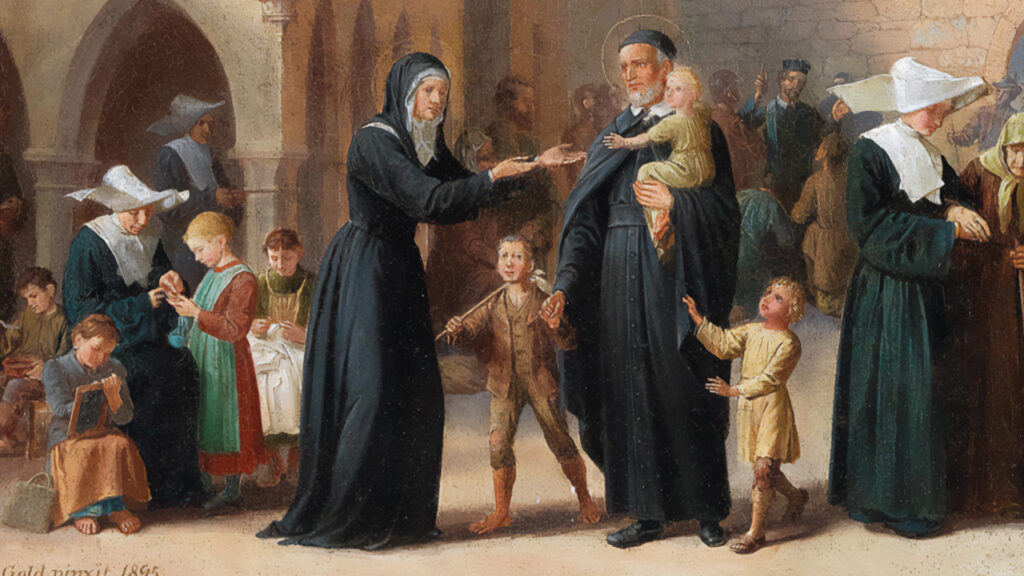While he was a priest, St. Vincent de Paul worked in a high position for the government for many years and one of his tasks was to employ people for the government. One day a mother came and asked for a job for her son. After examining the candidate’s abilities, he concluded that the candidate did not have the necessary skills for the position his mother wanted him to fill.
St. Vincent had to tell her that her son was not qualified for the position: “I am sorry, but I cannot give this job to your son,” the saint said, trying to be as kind as possible.
So, what happened? The mother, who was very angry, took something heavy that was on St. Vincent’s desk and threw it at St. Vincent, hitting him on his head and cutting it. Then she left the room. And, what happened next? St. Vincent took his handkerchief and, wiping his bloody head, said: “Amazing! How great is a mother’s love!” The religious who served as his secretary and saw the whole scene was shocked by St. Vincent’s meekness.
We can say that St. Vincent had the wisdom of which the apostle James speaks in his letter: the wisdom from above is first of all pure, then peaceable, gentle, compliant, full of mercy and good fruits, without inconstancy or insincerity. And the fruit of righteousness is sown in peace for those who cultivate peace (Jas 3:17-18), which we can summarize in one word: meekness.
Meekness is a moral virtue, a potential part of temperance through which anger (the irascible appetite) is moderated. To moderate does not mean to make it disappear but to keep it in its just limits. To seek to make the irascible power disappear, (which is impossible because it would be seeking to cease to be human) is to fall into another vice, which is the lack of capacity to be angry, which has nothing to do with the virtue of meekness and is also a sin. There is a holy wrath, which makes us angry when it is necessary, and which our Lord manifested in certain moments during His life, such as at the cleansing of the Temple.
Meekness is a force that supposes the passion of anger, but it is a force superior to the passion of anger which helps us to dominate the anger, or have it under control, and use it at the right time and in the right way.
St. Basil says that it is the most important virtue for dealing with others. In fact, Jesus asked us to imitate just three of all the virtues that He possessed: charity: love one another as I have loved you (Jn 13:34; humility and meekness: learn from me, for I am meek and humble of heart (Mt 11:29).
The whole Gospel is a compilation of the way that Jesus practiced this virtue. Think, for example, of Jesus’ meekness in front of all the accusations that Jesus received from the scribes, pharisees, etc. during His public life, or the mistreatment He received during His Passion, etc.





